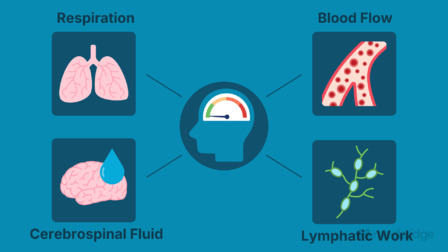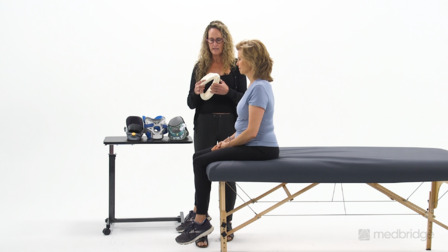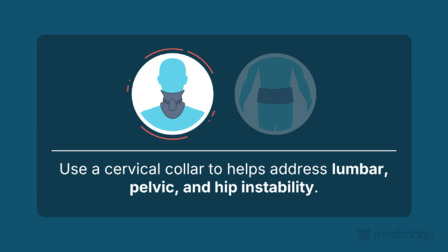Advanced Upper Cervical Supportive Strategies With HSD/EDS
Presented by Patricia Stott and Susan Chalela
12-Month Subscription
Unlimited access to:
- Thousands of CE Courses
- Patient Education
- Home Exercise Program
- And more
Individuals with hypermobility spectrum disorders (HSD) and Ehlers-Danlos syndromes (EDS), particularly those with upper cervical instability (UCI), often present with complex, layered neurological and musculoskeletal challenges. This course explores the advanced supportive strategies needed for managing moderate to severe presentations of UCI, including cases in which direct cervical intervention is not tolerable. Healthcare providers will gain practical tools for identifying related coexisting conditions, incorporating bracing and ergonomic principles, and applying core stabilization techniques to support the upper cervical spine indirectly. Emphasis is placed on a holistic and systems-based approach, integrating manual therapies, biofeedback, and the Finding Functional Foundations™ (FFF) method to enhance motor control and proprioception. This course is intended for physical therapists, athletic trainers, and rehabilitation professionals working in outpatient orthopedics, neurology, and specialty care settings.
Learning Objectives
- Extrapolate the connections of the more commonly associated conditions in HSD/EDS with more severe presentations of upper cervical instability
- Coordinate supportive strategies for upper cervical instability with bracing and ergonomic recommendations
- Collaborate on adjunct treatments to promote core strength and stability for upper cervical instability
- Interpret the need for biofeedback and alignment-related strategies that can support the upper cervical spine
Meet your instructors

Patricia Stott
Patricia Stott treats primarily those with HSD/EDS and those considered highly sensitive patients at her own practice, Elevation Wellness, outside the Denver metro area in Colorado. Also trained in functional and herbal medicine, she works on health and wellness through holistic strategies with these patients, both in person…

Susan Chalela
Susan Chalela founded the Chalela Physical Therapy Institute for EDS and Cervical Instabilities. With more than 25 years of clinical experience and a master of physical therapy degree from the Institute of Physical Therapy in St. Augustine, Florida, Susan has built a career spanning various specialties, including neurological…
Chapters & learning objectives

1. Associated Conditions and Connections With Moderate to Severe UCI
This chapter outlines the systemic and neurological comorbidities frequently seen in individuals with HSD/EDS and upper cervical instability. Clinicians will learn to recognize the clinical patterns that differentiate the more typical diagnoses within the neurological phenotype, with an emphasis on coexisting conditions such as Chiari malformation, tethered cord syndrome, and cranial nerve involvement. Understanding these associations and the necessity for referral out to adjunct providers helps guide safer and more comprehensive treatment strategies.

2. Bracing and Ergonomics
This chapter explores bracing and ergonomic strategies as essential tools for symptom management and spinal support. Topics include the appropriate selection and fitting of cervical, lumbar, and thoracic supports, as well as guidance on use schedules and integration with stability training. Clinicians will also learn how ergonomic interventions in daily tasks and environments can help reduce compensations, improve alignment, and promote functional independence.

3. Working Away From the Neck
When direct cervical interventions are not tolerated, clinicians must shift focus to distal stability. This chapter introduces strategies that support the cervical spine from the pelvis upward, incorporating thoracic and scapular alignment, diaphragmatic breathing, and foundational motor control principles. The importance of biofeedback and proprioceptive training is emphasized to restore control and prepare the body for eventual cervical work.
More courses in this series

Advanced Cranial and Upper Cervical Instability Presentation in HSD/EDS
Patricia Stott

Advanced Upper Cervical Supportive Strategies With HSD/EDS
Susan Chalela and Patricia Stott

Advanced Upper Cervical Instability Direct Interventions in HSD/EDS
Susan Chalela and Patricia Stott